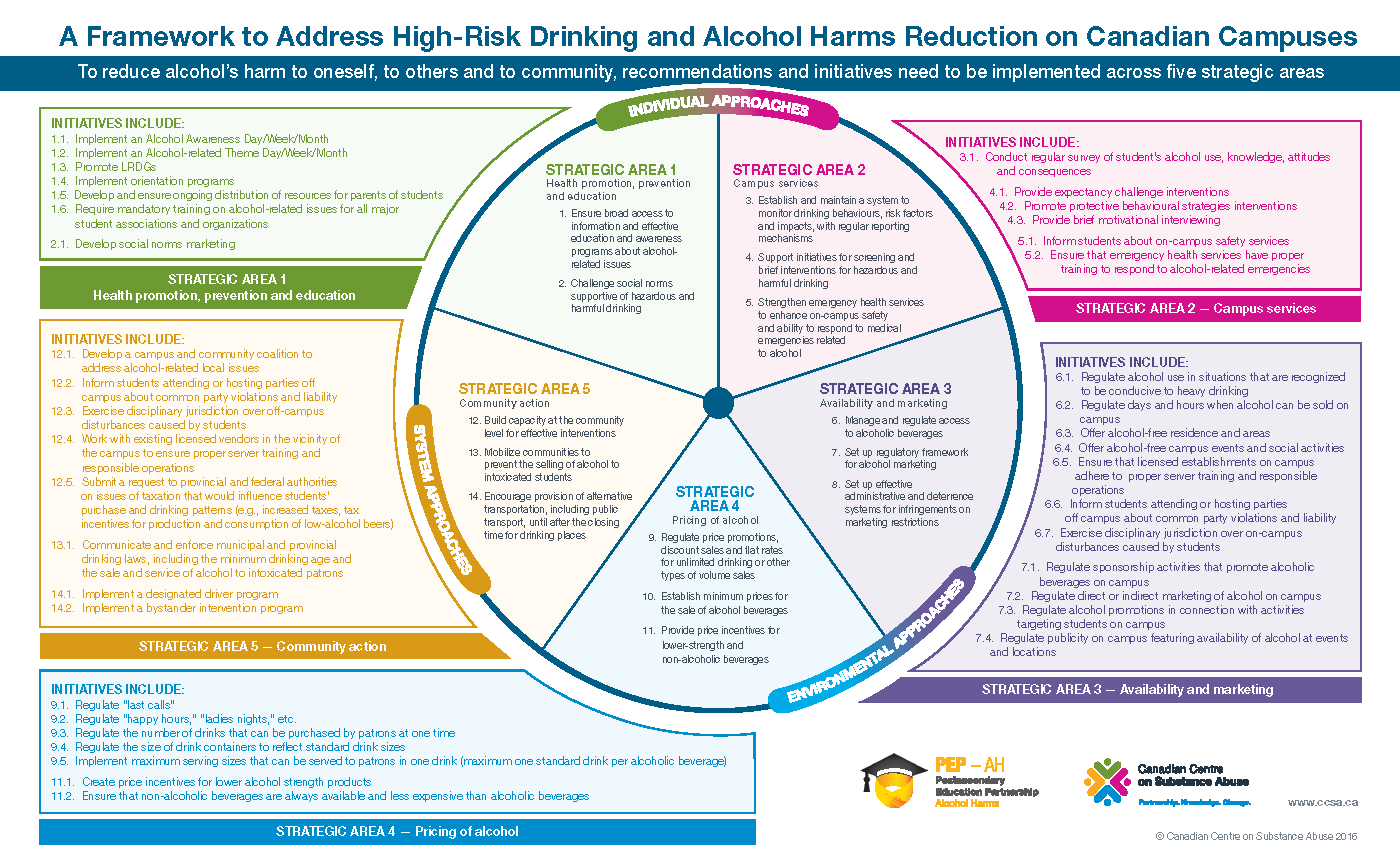Healthy Community
Communities can be where you live or a group of people that have a common interest. Communities play a strong role in shaping social norms and have the ability to create healthy environments. Reducing alcohol-related harms requires supportive communities where we live, learn, work and play.
- Post-secondary level students and youth
-
Reducing alcohol-related harms among youth and post-secondary students is an important area of focus. Alcohol is responsible for the majority of substance-use related hospital admissions among youth.
In PEI, over 40% of Island students grades 7-12 report alcohol use in the last year, and of these students, 76% report binge drinking (much higher than the Canadian rate of 60%).
Colleges and universities are an environment where high levels of alcohol intake can be seen with social norms, peer pressures, and new experiences. Creating safe and mindful drinking spaces in these spaces is an important part of reducing alcohol-related harms among youth in our communities.
A Postsecondary Education Partnership on Alcohol Harms Framework exists to support and inform best practices to reduce harms from alcohols and promotes student health and safety in Canada.
- Campaigns and public education
-
"Less Is Best"
In November 2023, the Chief Public Health Office launched a provincial campaign on alcohol and health, "Less Is Best", to raise awareness about the new Canadian Guidance on Alcohol and Health.
"Should I Have Another?"
From 2015-2019, the Chief Public Health Office partnered with the PEILCC on “Should I Have Another?”, a public education campaign on the LRDG. The benefits of a CPHO-led campaign are no retailer conflict of interest and the ability to measure health outcomes.
Despite significant marketing and reach, the “Should I Have Another?” campaign has only managed to increase knowledge that the guidelines exist from 19% to 26% of survey respondents. There has been no measurable improvement on knowledge of actual drink limits or behaviour change.
- Impaired driving
-
Despite having some of the toughest and most comprehensive impaired driving rules in Canada, PEI had one of the highest rates of police reported impaired driving incidents in Canada in 2019. Impaired driving continues to remain a significant public safety concern in PEI and it is the greatest cause of criminal injury and death.
Impaired driving has significant long-term costs and harms to our Island communities and therefore is an important priority area of prevention. Changing cultural norms around alcohol consumption and impaired driving is required through increased awareness of the risks associated with alcohol consumption and strengthening alcohol policy in PEI.
Remember that zero is always the limit when operating any motor vehicle. For information on penalties and consequences of impaired driving in PEI visit Impaired Driving PEI.




